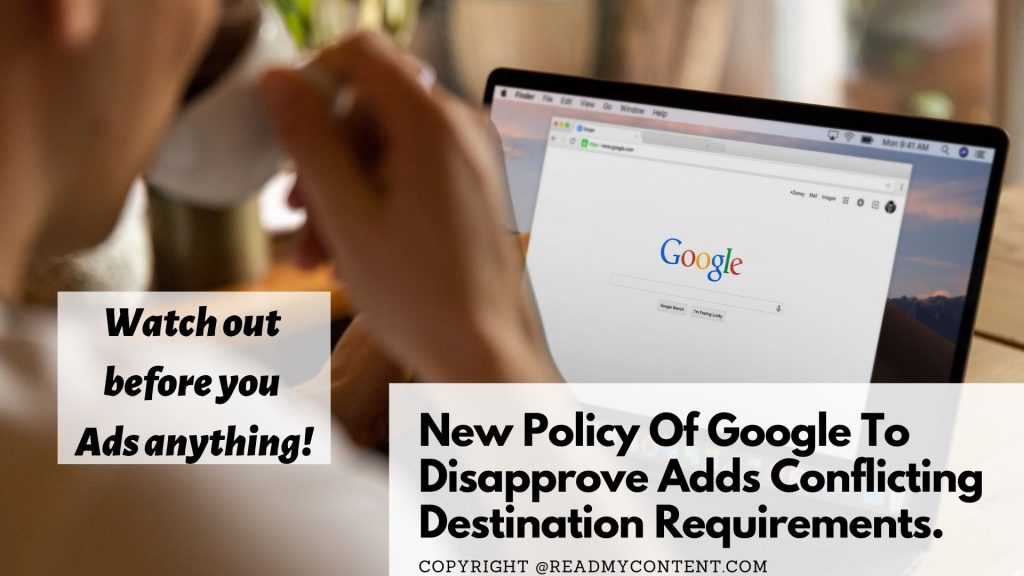In an email notification addressing the advertisers, Google categorically laid out the terms pertaining to the Destination requirements policy it is going to implement in October this year (2022).
According to the policy of ‘destination requirements Google ads’, the search engine giant will now see whether the landing pages of advertisers comply with its “better ads standards” policy.
To say otherwise, if Google finds an advertisement leading to a destination page of the advertiser’s website with intrusive ads, it would lead to the rejection or disapproval of the ad, citing non-compliance with Google Ads ‘destination requirement’ policy.
Sounds like Google doesn’t like to compromise with visitors’ quality of browsing experience on the landing page replete with misleading, irrelevant, and useless ads.
What does it mean by “destination requirements” in Google Ads?
Destination requirements denote a technical term for a website’s particular webpage and the inflow of inbound traffic to it.
Technically speaking, the term ‘destination requirement’ means to indicate a user’s experience of visiting from one source to another webpage, also known as the landing page.
The term, ‘destination’ simply indicates the target source, such as a webpage to be visited when an online user clicks a link leading to that webpage. In this case, if you click a link assuming it would lead to a webpage of your purpose, you are trying to visit the destination page.
For example, if someone clicks on source ‘A’ which leads to source ‘B’, then the latter one is called the destination page. It is also called a landing page.
The destination requirement in Google ads means that if someone is placing an ad on Google, he should be familiar with its relevance in accordance with Google’s policy of Better Ads Standards.
In other words, do not post ads in Google that lead to the destination pages with clickbaits or irrelevant ads.
Destination Requirements – What do Better Ads Standards mean for common users placing ads on Google?
For a common user or marketers placing ads on Google, the caveat simply means not to take Google’s policy regarding Better Ads Standards for granted.
They should ensure that their website’s landing pages don’t feature anything conflicting with Google’s policy regarding ads.
For instance, if the landing page is full of intrusive, irrelevant, or annoying ads leading to bad experiences for the traffic (visitors), Google says it will disapprove the ads linked to such landing pages.
Therefore, users should ensure that their landing page is fully optimized for the page experience update of the search engine (Google).
Destination Requirements – How will I know if my landing page doesn’t meet Google’s Better Ads Standards policy?
If you think you are not familiar with Google’s Better Ads Standards policy or whether your landing page complies with the same, don’t worry. The search engine will let you know about this in its Ad Experience Report.
Moreover, you can also self-edit your ad experiences to get a better understanding of whether your ads comply with Google’s policy.
What are the ads that Google thinks don’t comply with its policy for Better Ads Standards?
- Flashing animated ads
- Pop-up ads
- Sticky ads that barely move as the users/visitors scroll the page
- Higher density of the ads (more than 30%)
- Audiovisual advertisements that play automatically.
- Any ads that a visitor doesn’t appreciate or give it a bad browsing experience.
Conclusion
Google has made it clear for the advertisers to follow its ‘Better Ads Standards’ policy or else their ads will be disapproved. The eventual result of disapproval will happen if the ad in question is reported via Ad Experience Report, stating the grounds for its rejection.
Therefore, you need to stay careful and see that your ads accurately reflect the destination requirement (where the traffic/visitors are being directed) to avoid your ads getting disapproved by Google.
